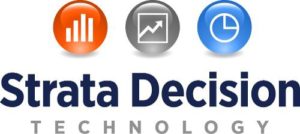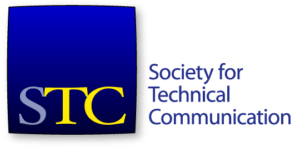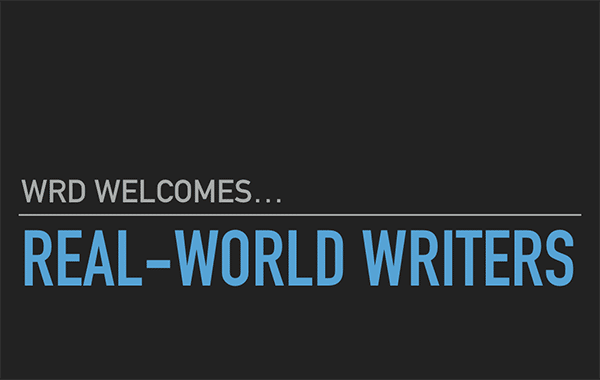This quarter in WRD 521: Technical Writing, we were fortunate to have four technical writers visit the class to share some of their experiences in the field. The blog has two parts, so make sure to head over to the next post after reading this one. Our first two visitors, Adam Evans and Heidi Colonna—both of whom work as technical writers in Chicago—attended our class on February 6, 2018 to share some of their stories, tips, and knowledge.
Introduction
Heidi Colonna started her path to a tech-writing career as a help-desk analyst for a software platform in the early 1990s. She later enrolled in the School for New Learning at DePaul, where she took a Technical Writing course that was her gateway into the profession.
Adam Evans received his bachelor’s degree in Technical Communications from Cedarville University in Ohio. He chose Technical Communications because it integrated his two passions—writing and technology.

Both visitors currently work for Strata Decision Technology, a financial healthcare software company here in Chicago of about 250 employees. Colonna and Evans write technical documentation for Strata’s software. Their team works closely with developers, product managers, and quality assurance specialists at Strata.
Working as a Tech Writer
 Both writers remarked on Chicago’s thriving tech scene. There are many new startup and small software companies that offer fun and rewarding work environments. Basically, any city with a thriving tech scene has a need for technical writers. The Society for Technical Communication (STC) publishes an annual salary database for their members, and Chicago is always in the top-10 metro areas for technical writing jobs.
Both writers remarked on Chicago’s thriving tech scene. There are many new startup and small software companies that offer fun and rewarding work environments. Basically, any city with a thriving tech scene has a need for technical writers. The Society for Technical Communication (STC) publishes an annual salary database for their members, and Chicago is always in the top-10 metro areas for technical writing jobs.
At Strata, the technical writing team uses software called MadCap Flare to manage content for their software documentation. Colonna described how she has started a new initiative at the company that produces instructive screenshots with image callouts using SnagIt software. This visual approach was well received by users, which demonstrates that these design skills can be very important in the field. For the students of WRD 521, whose first project of the quarter was producing multimodal instructions using SnagIt, this was good to hear!
Also interesting was the glimpse these writers gave into a technical writer’s ‘typical workday.’ Many people are under the misconception that technical writers write all day. Colonna said that writing takes up perhaps 25% of a typical day. Most of the time, technical writers are interviewing subject-matter experts, participating in meetings, and information-gathering. To stay on top of new information, Evans and Colonna have weekly meetings with their product teams. They work in an agile environment, which means they break up their work into two week “sprints” or chunks.
Takeaway Tips for Aspiring Technical Writers
Colonna and Evans gave WRD 521 students a great ‘real-world glimpse’ into the work of a technical writer. When our class debriefed after the visit, here are some of the lessons we took from our visitors:
- It’s important for technical communicators to find a company that does work they personally believe in.
- It’s also important for technical writers to know if they want to work independently or collaboratively, and to seek out work environments that fit their preferred mode of working.
- Working for a smaller company may be more rewarding than working for a larger company. Smaller companies often facilitate learning and offer more access to other people in the company. Technical writers can make a big impact in these companies, and they’re often able to have a lot of autonomy and creative control.
- Internships help students discover what works or doesn’t work for them in the industry.
- Network! STC has a local chapter in Chicago and they also host networking events in the city. There is a content strategy meetup here in Chicago for content strategists and specialists.

The Society for Technical Communication offers networking and professional development opportunities for tech writers - Colonna recommended the STC Summit Conference to students and professionals that want development in technical communication.
- Having a style guide is very valuable in delivering on the customer’s expectation of consistency—especially on teams with multiple writers. Take WRD 523: Editing next fall if you want to learn how to make a style guide!
- Web and coding skills are becoming more important in the technical writing industry. It can be useful to take a course or seek out other professional development opportunities to learn basic coding, API documentation, or search engine optimization (SEO).
- Depending on the level of education and experience a technical writer in Chicago can make between $40000 and $60000 as their starting salary. A candidate with a graduate degree and years of experience will receive a higher pay than an undergraduate with little experience. Independently contracted or freelance technical writers in Chicago can make between $50-$125 an hour.
We want to thank Adam and Heidi for their sharing their real-world insights with us! Also, don’t forget to look for part two of our “Tech Writers Visit WRD 521” story, coming soon, which recaps the visit from a second pair of visitors to WRD 521.
